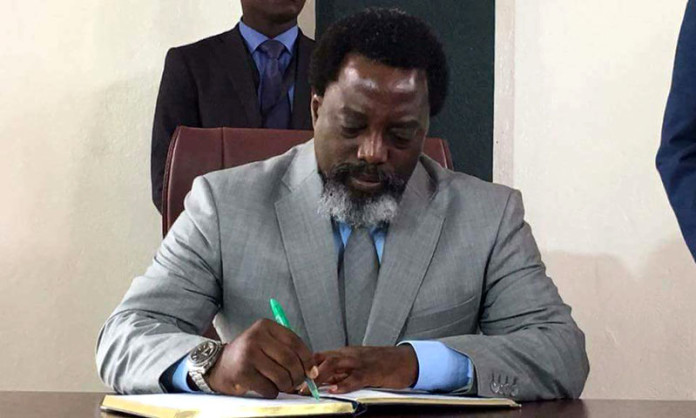
MINING companies including Randgold Resources and Glencore said they were able to influence some regulations through which the Democratic Republic of Congo’s (DRC’s) 2018 Mining Code would be implemented, but they were unable to deal with key issues.
In a joint press release also signed off by AngloGold Ashanti and Ivanhoe Mines the mining firms warned that flaws in the current provisions of the Mining Code would create “… numerous practical and legal problems” ultimately affecting investment in the country. They would continue to engage, the joint statement said.
Mining companies operating in the DRC met with the central African country’s president, Joseph Kabila on March 7 just as the Mining Code was due to be signed in to law. They argued that stability clauses in the previous 2002 Mining Code ought to be honoured, but also suggested a compromise agreement whereby planned royalty and duty increases set down in the 2018 update could be replaced with a sliding scale of royalties through which the DRC would benefit immediately instead of waiting on so-called ‘super profits’.
Kabila said the Mining Code would proceed as written, but appeared to offer some hope by telling mining companies they would have a chance to engage in the drafting of regulations. They would be allowed to nominate representatives to a commission which would draft the regulations. The commission had since finished its work.
“The industry team participated actively in the process and influenced a number of the regulations arising from the code,” said the companies today, adding however that the commission’s terms of reference were restricted to the regulations and, therefore, it could not deal with rights vested under the 2002 Mining Code.
However, mining firms said they would continue to engage with government “at all levels” as well as with Civil Society which was “influential”. In addition, the proposal submitted to Kabila regarding the sliding scale of royalties had not yet drawn a response.
The outcome is less optimistic than the note struck by Randgold Resources CEO, Mark Bristow last week who said the companies were “completely engaged”, although even at that point, Bristow was scathing of the DRC’s reluctance to acknowledge mining firm rights under the stabilisation clause of the previous mining code.
Quoting from a draft copy of the 2018 Mining Code’s regulations, Bloomberg News said last week that Kabila’s government had not incorporated any of the mining sector’s recommended changes to the code which included imposing a new profit share dispensation on a sliding scale rather than the proposed super profits tax.
One of the changes in the DRC’s 2018 Mining Code is that royalties on cobalt, which is a vital component in electric car batteries, increase fivefold to 10%. There is also a requirement for increased ownership by the state in the mines. Mining firms said recently that under the 2002 Mining Code, there was over $10bn in direct investments by the mining industry which created over 20,000 full time jobs in the DRC.











